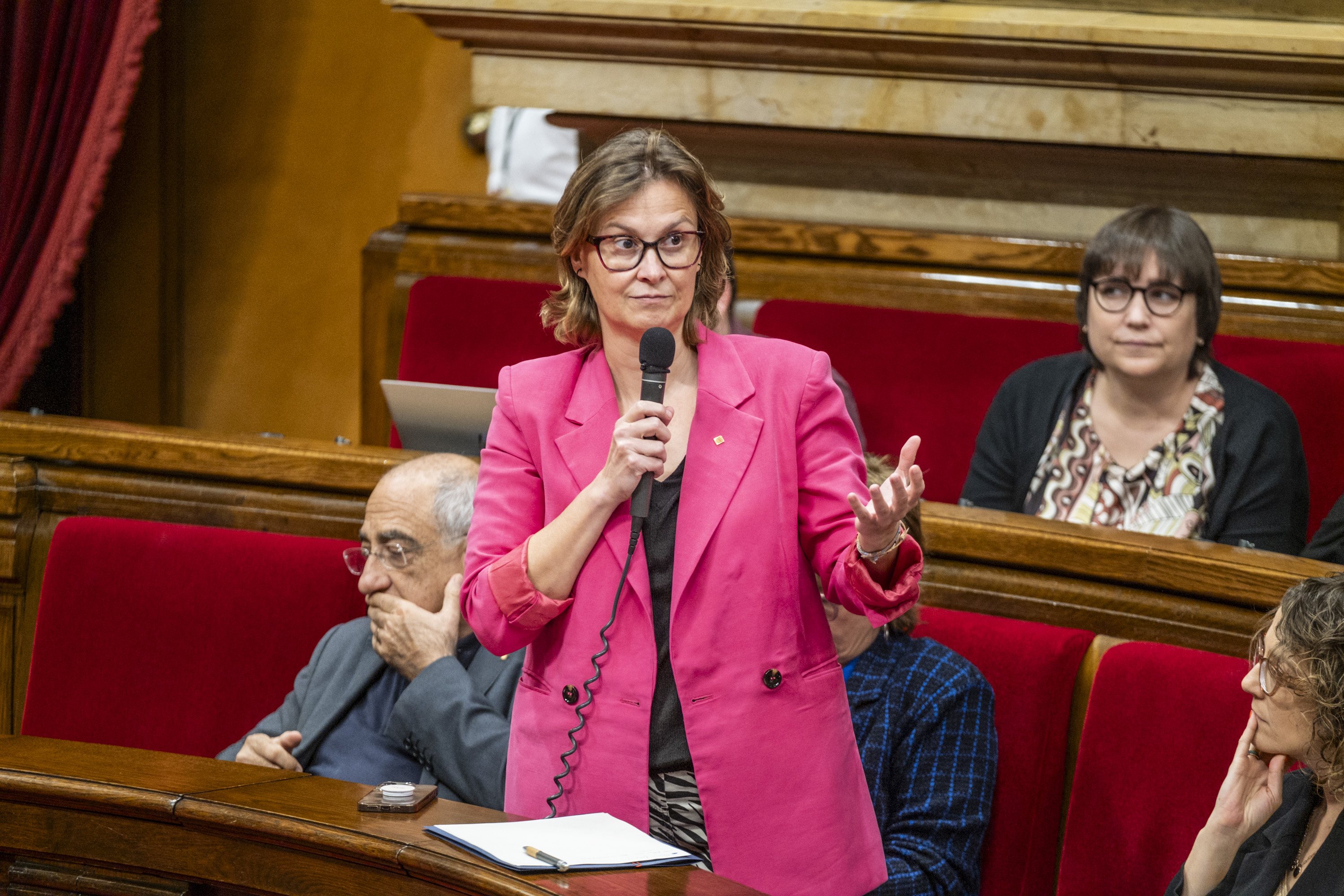A new squabble between the Catalan government of the Republican Left (ERC), and their sometime allies, Together for Catalonia (Junts), in Parliament. On this occasion, the reason for the confrontation was the so-called "Russian plot", a narrative which has no credibility for either of the two parties. Nevertheless, this Monday, the foreign minister Meritxell Serret appeared before the Catalan parliament's foreign action committee to report on the budget that her department will have for 2024, under the draft accounts agreed between the ERC and the Catalan Socialists (PSC). In a reply to Junts, Serret accused Carles Puigdemont's party of "not prioritizing the country" and took the opportunity to rebuke them for this failing: "If they had done so, frankly, we wouldn't have the work we have right now in foreign affairs to convince our allies and the international media that Catalonia is not an anti-immigration country and that we have no interest in the Kremlin."
The Republican minister's statement, emphasizing that they are "working" to convince that there is no link with Vladimir Putin's regime, infuriated the Junts MPs. During his speaking turn, Josep Rius, party vice-president and deputy spokesperson in Parliament, said that the minister's reference to the Kremlin was "regrettable". In particular, Rius asserted that the terms of the accusation "used the tools of the Spanish judicial and media cavern for partisan interests". "I'm sorry to say it, it's very unfortunate," said Rius.
This clash also occurs a few weeks after Joaquín Aguirre, the Barcelona judge investigating the wide-ranging Volhov case on independence process funding, decided to prolong by six months the about-to-expire investigation on a part of the case, which purports to link the exiled Catalan president, Carles Puigdemont, with an alleged secret Russian offer to help Catalonia achieve its independence in 2017, through several meetings with Russian personalities. The judge also decided to maintain the investigation for Puigdemont's head of staff, Josep Lluís Alay, the former leader of the Convergència party, Víctor Terradellas; and computer scientist Jaume Cabaní. In this way, Aguirre was setting up a possible path to accuse Puigdemont of a crime of high treason, which would be a new impediment to his ability to benefit from the amnesty law. Moreover, any case based on such a charge would in the first place see the case elevated to the higher National Audience court and, in addition, Puigdemont is further protected by his status as an MEP.
Other arguments between Junts and ERC over the Russian plot
This is not the first time that the two pro-independence parties have clashed over an alleged Russian conspiracy whose existence both parties strenuously deny. Two years ago, statements by Gabriel Rufián, leader of ERC in the Congress of Deputies, included some colourful insinuations about Puigdemont and his team: "They are gentlemen who were going around Europe meeting the wrong people because for a while they thought they were James Bond." In turn, Míriam Nogueras replied to the ERC member that "whoever says this about James Bond, takes the information from Mortadelo and Filemón," - in reference to a Spanish comic-book detective duo. "Never has the Kremlin been asked for support," responded Nogueras to the Spanish lower house.

